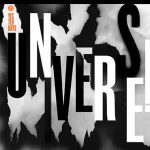Oh No discovers foreign funk close to home
Oxnard, California, in the '70s was an unlikely setting for sonic profusion. After all, the suburban landscape is overtly serene, an unwelcoming atmosphere for bass licks and drum kicks. But within the Jackson household, music blared, echoed, and made an imprint on Oh No. "My father, Otis Jackson, was a soul singer, and my uncle Jon [Faddis] played trumpet," recalls Oh No, having benefited from the clamor. "Growing up, my brother and I were in the lab the whole time. And our father was real strict about us not clowning around when it came to music. There were always cats jamming in the studio, and my father made sure we were always there and well behaved. I was only like five years old then, but I remember funk being played 24-7."
Oh No is also swift to assert the insight he's gained from older brother Madlib: "He's about five and a half years older than me, and we shared a room together till I was about ten years old. Just from being there, I was exposed to the illest hip-hop. Whether it was Run-DMC, Juice Crew, Rakim, or De La, Madlib played the dopest of the dope. I never heard any garbage," contends Oh No, who claims to have been a curious kid. "If my brother wasn't around, I'd be on his sampler. And if he was, I'd be watching and learning. Having my dad's discipline, my brother's influence, plus all their records? It was like the best training you could ask for."
Now, at age twenty-eight, Oh No has built his own studio where curiosities are conquered. His latest instrumental project, Dr. No's Oxperiment, employs music by Mazar Besuat, Ozdemir Erdogan, and other international psych-funk pioneers. And, once again, a person of influence would familiarize Oh No to new sounds. "My friend Egon helped me put this whole thing together. Dude's a fanatical record collector. He travels all around the world just lookin' for music," asserts Oh No. The project took shape when Egon – Stones Throw's Eothen Alapatt, whose digging exploits have been well celebrated – gave Oh No a quick mix he had patched together. "The CD he made were of these [Greek, Italian,] Turkish, and Lebanese funk records. The mix only had about twelve songs on it, but I made like thirty beats from 'em! Egon was impressed when he heard it, and I trust his opinion, because these were his records, and he'd tell me if they were in bad taste. With Egon's help, I got the originals, cleaned things up, and that birthed this project. I owe a lot of this to him."
Through a childhood of familial influence and friendly record swaps, Oh No is indebted for the opportunity to retouch classic material. He had the same honor in 2003 when Gait MacDermot allowed him access to his original compositions. The release, 2006's Exodus into Unheard Rhythms, was a benchmark in Oh No's early career, and largely introduced listeners to his production work. Despite how Dr. No's Oxperiment is likened, Oh No seems genuinely grateful for the chances-and music-he's been handed. "These aren't the type of records you'd find in Oxnard in the '70s. [laughs] Seriously, I've been real lucky to have been surrounded by people who love music, and a lot of it straight-up fell in my lap." On his latest findings of foreign funk, with vigor in his voice, Oh No concludes: "The world was crackin' during this time! It's raw, ridiculous raw. They sound like uncooked symphonies! I didn't know music like this existed, but I'm glad it did."
